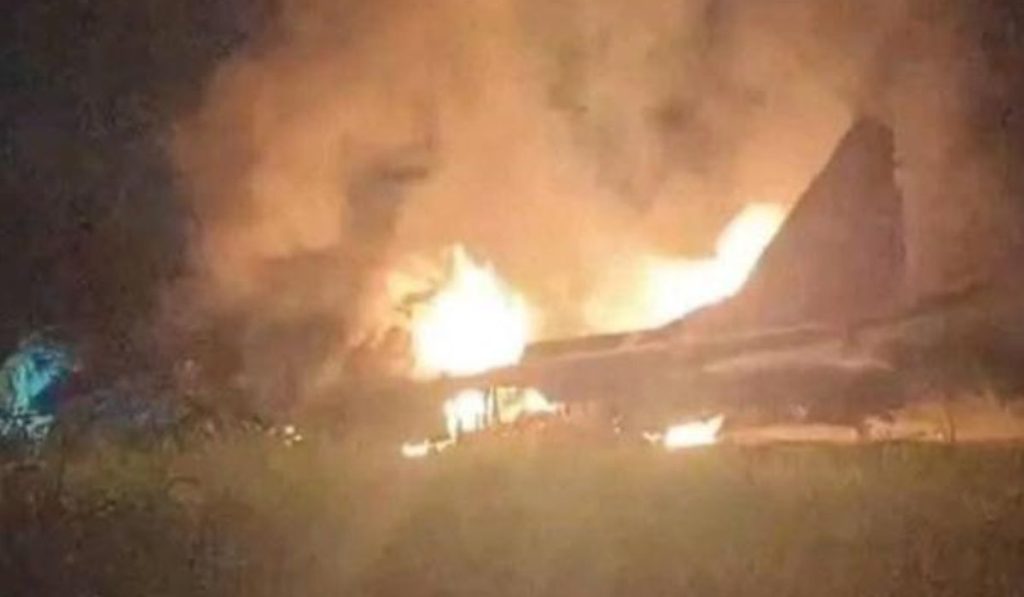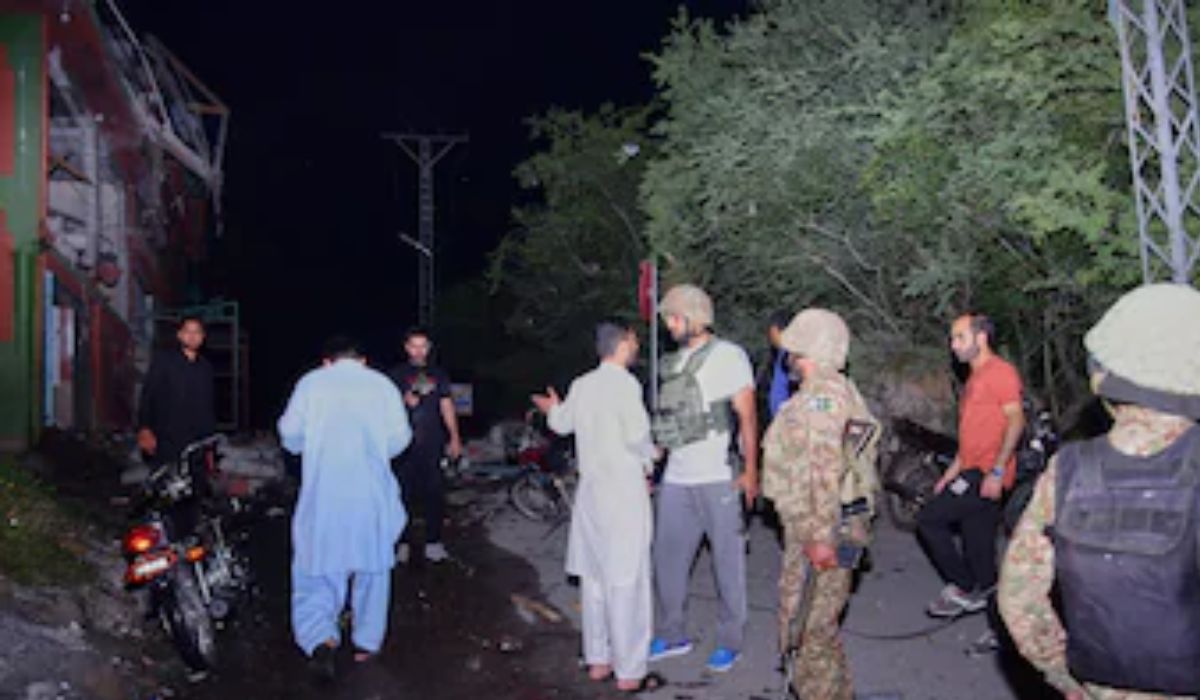Pakistan Air Force Downs Two Indian Jets in Retaliation
Amid rising tensions, the Pakistan Air Force (PAF) has claimed responsibility for shooting down two Indian fighter aircraft, including a Rafale jet, in response to India’s unprovoked aggression, according to security sources. The incident occurred near Ahmedpur East in Bahawalpur, as both countries engage in an escalating conflict. Pakistani military sources have confirmed that all of Pakistan’s air force aircraft are safe.
Pakistan’s retaliatory strikes also extended to ground targets. A Pakistani missile strike destroyed an Indian Army post in the Doodhnial sector along the Line of Control (LoC). This follows India’s early missile strikes on multiple Pakistani cities, marking a significant escalation in the already tense situation between the two nuclear-armed neighbors.

Pakistan’s National Security Committee Responds to Indian Aggression
In response to India’s missile strikes on civilian areas, Prime Minister Shehbaz Sharif has convened an urgent meeting of Pakistan’s National Security Committee. The meeting, which will take place today at 10 AM, aims to discuss the national security situation and formulate a strategy moving forward. Federal Minister for Information Atta Tarar stated that key decisions regarding Pakistan’s response are expected to be made during this meeting.
Security sources confirmed that Pakistan’s military is giving a “befitting reply” to India’s aggressive actions, with both the Pakistan Army and Air Force fully engaged in counterattacks. Pakistan has also expressed its intent to hold India accountable for the loss of innocent civilian lives in the missile attacks.
Pakistan Destroys Indian Brigade Headquarters in Retaliation
Pakistan’s military spokesperson confirmed that in addition to the aerial victories, the Pakistan Army has successfully destroyed India’s Brigade Headquarters in a retaliatory strike. The Pakistani response came after India launched missile attacks from its airspace on five locations inside Pakistan, including Bahawalpur, Kotli, Muridke, Bagh, and Muzaffarabad. Pakistan’s military condemned India’s actions as a “cowardly” assault aimed at civilians, including a mosque.
The Pakistani government is determined to avenge the loss of innocent lives, with officials emphasizing that “the blood of innocent Pakistanis will be avenged at all costs.” Preliminary reports indicate that the Indian strikes have primarily targeted civilian areas, with casualties reported, including a minor who was martyred and a woman who sustained serious injuries in the attack.

Pakistan Declares State of Emergency in Punjab
In the aftermath of India’s missile strikes on civilian targets, the Chief Minister of Punjab, Maryam Nawaz Sharif, declared a state of emergency across the province. This decision came as part of heightened security measures, with all security agencies, including Punjab Police, placed on high alert. Additionally, emergency preparedness plans have been put in place, including the cancellation of medical staff leaves and mobilization of civil defense teams.
In a show of resolve, Chief Minister Sharif reminded the nation of the spirit of resistance that Pakistan has historically displayed, referencing the 1998 nuclear tests as a symbolic moment of national unity and strength. “We will give a befitting reply to the enemy’s aggression, just as we did in 1998,” she stated.
International Reactions and Diplomatic Efforts
Amid growing international concern, the United States has condemned India’s actions, with President Donald Trump calling the missile strikes “shameful” and urging both sides to de-escalate. The UN has also called for maximum restraint, with Secretary-General Antonio Guterres urging both countries to avoid further military action and pursue dialogue instead. The UN Security Council has discussed the escalating situation, stressing the importance of resolving the Jammu and Kashmir dispute, which remains a longstanding point of contention between the two nations.

Pakistan Warns of Consequences for Water Disputes
In a further escalation of tensions, Pakistan’s Defence Minister, Khawaja Asif, warned India against interfering with the flow of water from the Indus River, which is vital for Pakistan’s agriculture and economy. Asif emphasized that any attempt by India to block or divert Pakistan’s river water would be seen as an “act of war.” Pakistan has also raised concerns about India’s decision to suspend the Indus Waters Treaty, an agreement that has been in place for over six decades and governs the distribution of water between the two countries.
A Perilous Future
As tensions continue to mount, both countries are preparing for a potential military confrontation. Pakistan has repeatedly stated that it will respond to Indian aggression at a time and place of its own choosing. With the two nations both being nuclear powers, the international community remains deeply concerned about the risk of further escalation, which could have catastrophic consequences for the region.
In the face of these developments, Pakistan has reiterated its commitment to peace but made it clear that it will not tolerate violations of its sovereignty. As both nations brace for the next steps, the world watches closely, hoping that cooler heads will prevail to avoid further bloodshed.









